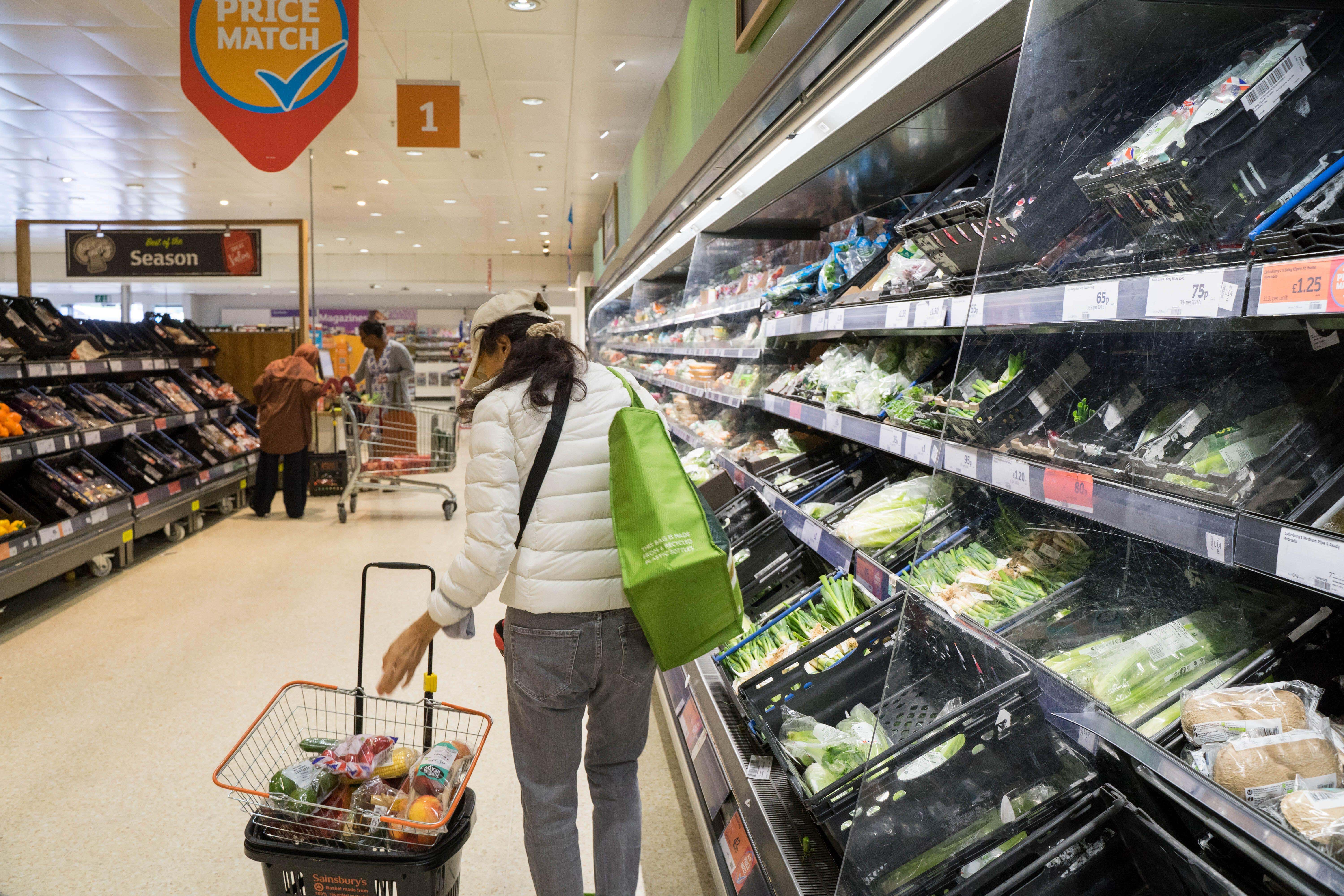What is behind the fall in UK inflation and what does it mean for households?
The Consumer Prices Index fell to 6.7% last month, down from 6.8% in July, according to official figures.

Your support helps us to tell the story
From reproductive rights to climate change to Big Tech, The Independent is on the ground when the story is developing. Whether it's investigating the financials of Elon Musk's pro-Trump PAC or producing our latest documentary, 'The A Word', which shines a light on the American women fighting for reproductive rights, we know how important it is to parse out the facts from the messaging.
At such a critical moment in US history, we need reporters on the ground. Your donation allows us to keep sending journalists to speak to both sides of the story.
The Independent is trusted by Americans across the entire political spectrum. And unlike many other quality news outlets, we choose not to lock Americans out of our reporting and analysis with paywalls. We believe quality journalism should be available to everyone, paid for by those who can afford it.
Your support makes all the difference.UK inflation unexpectedly eased in August, according to official figures.
The Consumer Prices Index (CPI) fell to 6.7% last month, down from 6.8% in July, as food price inflation and hotel and restaurant price rises eased.
Most economists had expected the figure to rise to 7.1% in August.
Here, the PA news agency explains what this means and how it could affect households and homeowners.
– What is inflation?
Inflation is the term used to describe rising prices. The inflation rate refers to how quickly prices are going up.
Every month, the Office for National Statistics (ONS) works it out by checking the prices of a range of items in a “basket” of goods and services, including everyday things such as food and train tickets, or larger purchases like a car and a holiday.
If the price of something rises from £10 to £11 over a year, then that would represent annual inflation of 10%.
– What is behind last month’s surprise drop in inflation?
The latest dataset from the ONS showed the inflation rate slowed down last month. Analysts had expected it to rise from July’s figure.
Slowing food prices were one of the biggest reasons why the overall rate fell, with the largest falls coming from milk, cheese, eggs, vegetables and fish.
Hotel and accommodation, and air fare inflation also came down significantly last month, which helped to offset rises in other categories such as fuel prices.
– Does a fall in inflation mean things are getting cheaper?
Falling inflation does not mean things are getting cheaper, but that prices are rising less quickly than before.
Households are still facing a cost-of-living squeeze, with prices continuing to climb in supermarkets, and important costs such as petrol and diesel going up.
Other products such as alcohol, coffee and clothing also saw price increases accelerate last month.
– What does it mean for interest rates?
The latest figures are especially important because they could encourage the Bank of England to stop raising interest rates for a while.
Most economists thought that the Bank’s policymakers would lift rates to 5.5% on Thursday, from the current rate of 5.25%.
But after August’s inflation figure was released, financial market expectations of a rate hike dropped from about 80% to roughly 50%, meaning analysts think it could go either way.
The Bank watches monthly inflation figures closely because they give an indication of whether rate rises are working to slow the economy and bring inflation back down to its 2% target.
– What does it mean for mortgages?
If we are nearing the peak of interest rates then it gives some hope for mortgage holders who may be worried about fixing to a new deal.
But the Bank of England is unlikely to bring down interest rates for some time, meaning households will continue to endure more expensive borrowing.
The average five-year fixed residential mortgage was 6.09% on Wednesday, according to data from Moneyfacts.
– What is the outlook for inflation from here?
The Government in January pledged to halve inflation from 10.7% to around 5.3% by the end of the year.
Chancellor Jeremy Hunt claimed the latest fall in the CPI rate shows “the plan to deal with inflation is working – plain and simple”.
He added: “But it is still too high which is why it is all the more important to stick to our plan to halve it so we can ease the pressure on families and businesses.”
The Bank of England thinks that inflation will meet its 2% target by early 2025.